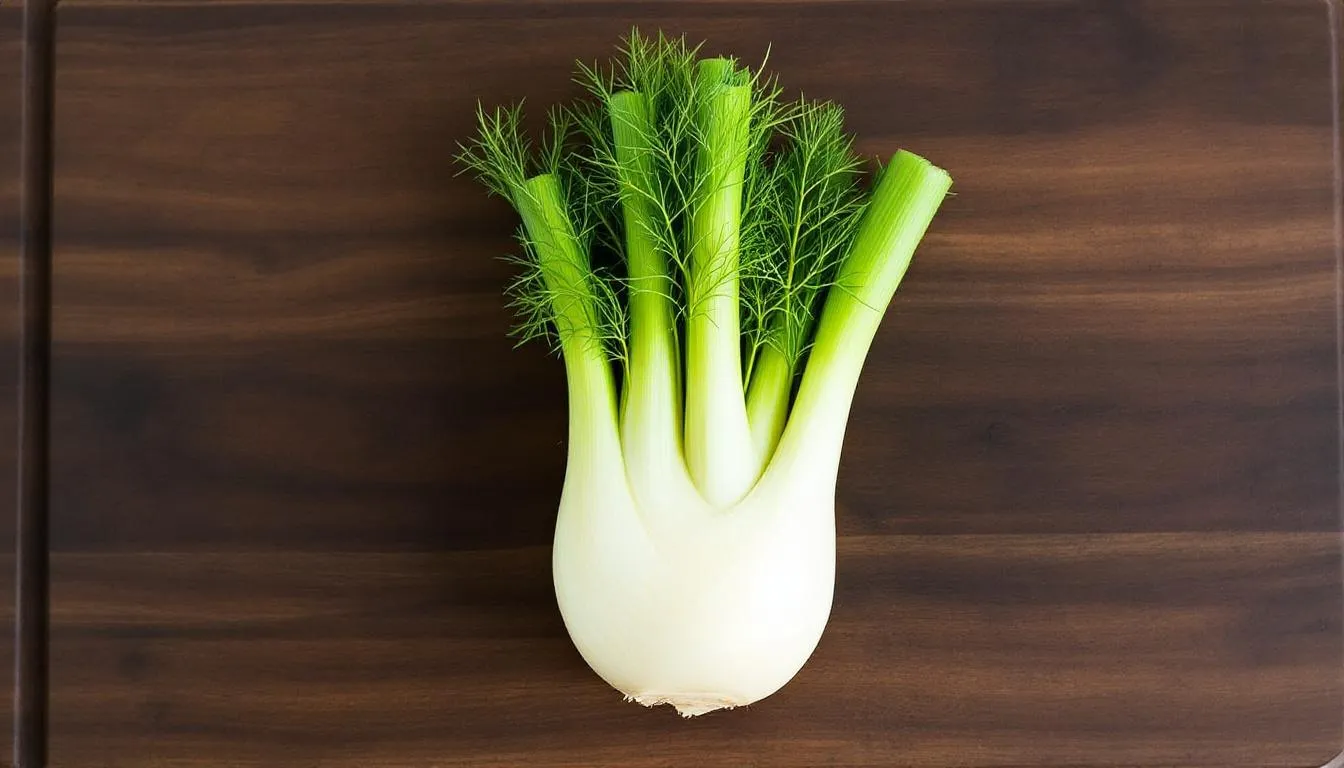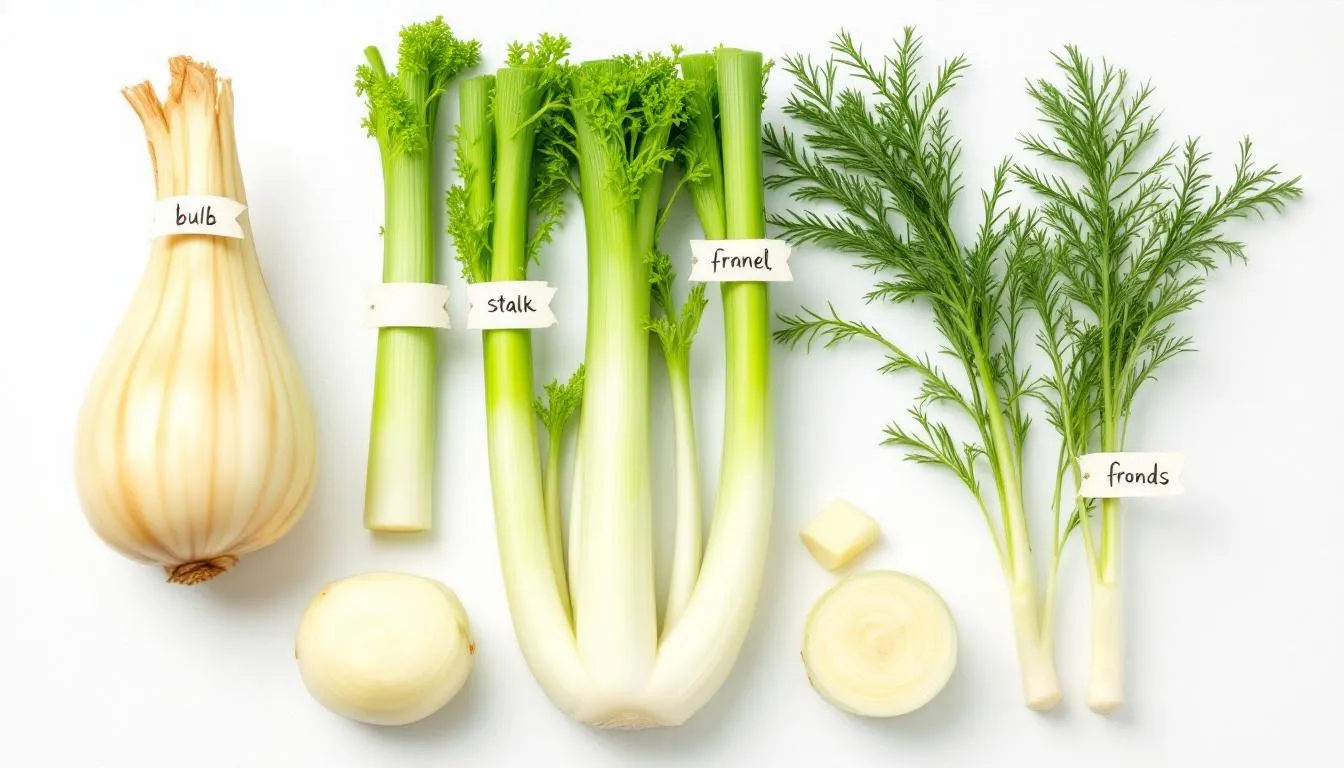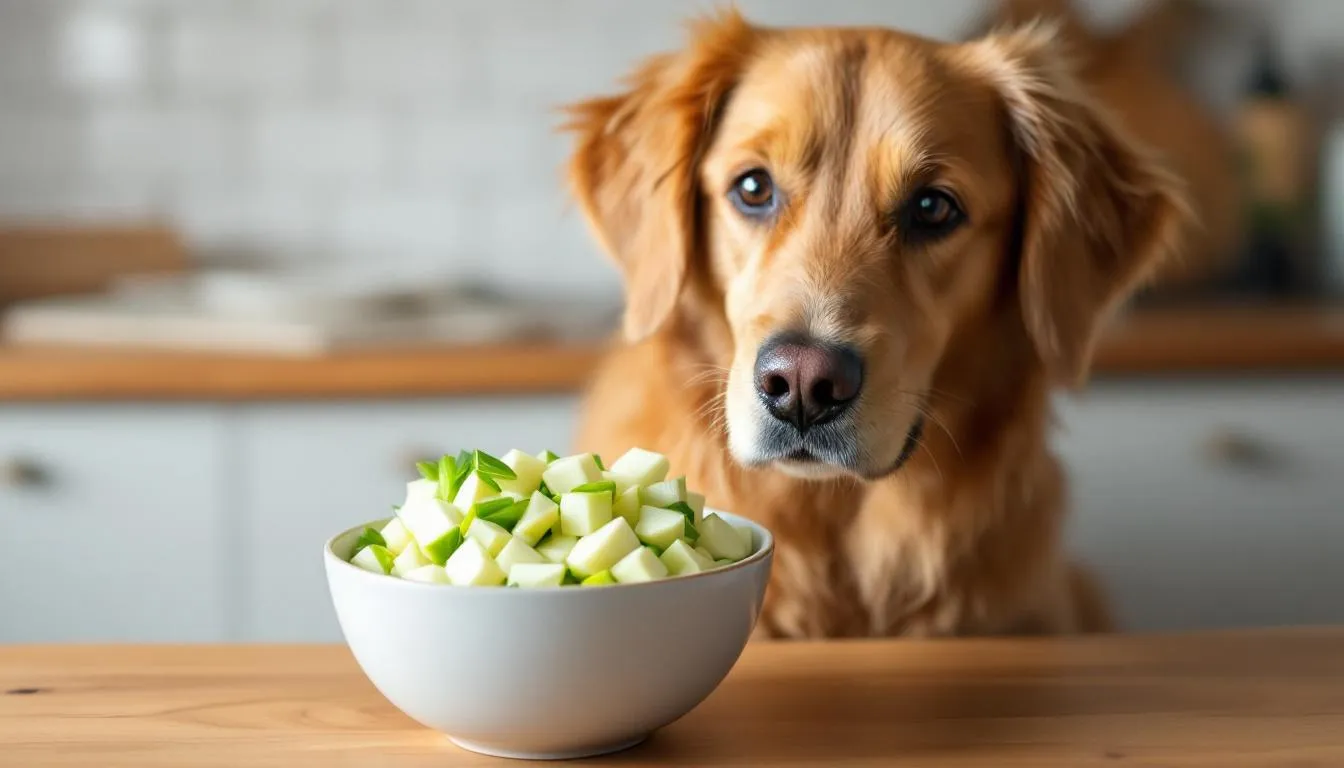Introduction to Fennel
Fennel is a versatile flowering plant that belongs to the carrot family, easily recognized by its crisp stalks, bulbous base, and delicate, feathery fronds. With a flavor profile reminiscent of anise or licorice, fennel brings a unique taste to both raw and cooked dishes, making it a favorite in kitchens around the world. Fennel seeds, in particular, are prized in cooking for their aromatic qualities and subtle sweetness, often used to enhance the flavor of various foods.
Beyond its culinary appeal, fennel is packed with nutrients that can offer real health benefits for your dog. This herb is a natural source of fiber, which helps support healthy digestion and can keep your pup’s digestive system running smoothly. Fennel is also rich in essential vitamins and minerals, including vitamin C, iron, and potassium. These nutrients play important roles in supporting your dog’s immune system, maintaining strong muscles, and promoting overall well-being.
Adding fennel to your dog’s diet in moderation can provide a gentle boost to their health, thanks to its combination of vitamins, minerals, and antioxidants. Whether you’re sprinkling a small amount of fennel seeds over your dog’s food or mixing in a bit of chopped stalks, this herb can be a flavorful and beneficial addition to your furry friend’s meals—just remember that moderation is key to keeping fennel safe and effective.
Key Takeaways
- Fennel is safe for dogs to eat in moderation, including the bulb, stalks, fronds, and seeds
- This herb provides beneficial nutrients like vitamins A and C, fiber, and antioxidants that support digestive health
- Always introduce fennel gradually and consult your veterinarian before adding it to your dog’s diet
- Fennel can help with digestion, freshen breath, and provide immune system support
- Excessive consumption may cause digestive upset, so proper portioning is essential
Fennel is safe for dogs to eat in moderation, including the bulb, stalks, fronds, and seeds
This herb provides beneficial nutrients like vitamins A and C, fiber, and antioxidants that support digestive health
Always introduce fennel gradually and consult your veterinarian before adding it to your dog’s diet
Fennel can help with digestion, freshen breath, and provide immune system support
Excessive consumption may cause digestive upset, so proper portioning is essential
When you’re chopping fresh fennel for dinner, those curious eyes watching from the kitchen floor might have you wondering: can dogs have fennel? The short answer is yes—but like most things in your furry friend’s diet, there’s more to the story than a simple yes or no. Dogs eat fennel safely when it is prepared properly, and they can enjoy fennel bulbs, fronds, and seeds in raw, cooked, or dried forms, as long as it’s given in moderation and with your vet’s guidance.
Fennel has earned its place in kitchens worldwide for its distinctive licorice-like flavor and impressive nutritional profile. For humans, it’s a versatile herb that adds crunch to salads and depth to cooked dishes. But when it comes to sharing this aromatic vegetable with your pup, understanding the safety guidelines and benefits makes all the difference.
Let’s cut through the confusion and give you the practical, science-backed information you need to make informed decisions about adding fennel to your dog’s food rotation. Incorporating fennel into your pup's food can provide added nutritional benefits and support their overall health.


Is Fennel Safe for Dogs?
Yes, fennel is generally safe for dogs when given appropriately. According to the ASPCA, culinary fennel ( Foeniculum vulgare ) is classified as non-toxic to dogs, cats, and horses. This includes all parts of the plant—the white bulb, green stalks, feathery fronds, and even the dried seeds.
Fennel belongs to the carrot family and carries that characteristic licorice-like flavor that some dogs find appealing while others might turn their nose up at. The key word here is “appropriately”—moderation and proper preparation are essential for safe consumption.
Before introducing any new food to your pup’s routine, including fennel, it’s wise to consult your veterinarian. This is especially important if your dog has existing health conditions or takes medications that might interact with new dietary additions.
While allergic reactions to fennel are rare in dogs, they can occur in sensitive pets. Pups (young dogs) may be more sensitive to new foods, including fennel, so introduce it with extra caution. Start with tiny amounts and watch for any signs of digestive upset, skin irritation, or unusual behavior after your dog tries fennel for the first time.
It’s crucial to distinguish between true fennel and “dog fennel”—despite the misleading name, dog fennel refers to toxic plants like Eupatorium capillifolium that can cause serious liver damage in dogs. Always ensure you’re using culinary fennel from the grocery store or garden, not wild plants with similar names. Unlike some other spices and herbs, culinary fennel is considered safe for dogs when used in moderation.
Health Benefits of Fennel for Dogs
Adding small amounts of fennel to your dog’s diet can provide several nutritional advantages. This herb packs a surprising amount of beneficial compounds into its crisp, aromatic package.
Fennel serves as a rich source of vitamin C and vitamin A, both crucial for supporting your dog’s immune system function. Vitamin C acts as an antioxidant, helping protect cells from damage, while vitamin A supports eye health and proper immune response.
The high fiber content in fennel aids digestion and helps maintain a healthy dog's digestive system. Many dogs with sensitive stomachs find that small amounts of fennel help reduce gas and bloating, though this varies from dog to dog. When introducing fennel or any new food, it’s important to consider your dog's digestive system and monitor for any changes or sensitivities.
Antioxidants in fennel help fight free radicals and may reduce inflammation throughout your pup’s body. These compounds work behind the scenes to support overall health and potentially slow aging processes.
One unique benefit many pet parents notice is fennel’s natural breath-freshening properties. The aromatic compounds that give fennel its distinctive scent can help freshen your dog’s breath when consumed occasionally—though it’s not a substitute for proper dental care.
Fennel also contains potassium and iron, minerals that support cardiovascular health and proper blood function. While your dog food should provide adequate amounts of these nutrients, fennel can offer a natural boost when used as an occasional treat.


Different Parts of Fennel and Their Safety
Understanding which parts of fennel are safe helps you make the most of this versatile herb while keeping your furry friend safe.
4.2 Fennel Seeds
Fennel seeds are safe for dogs in moderation and are often used to make fennel tea. To prepare fennel tea, steep a small amount of crushed fennel seeds in hot water, let it cool, and then offer it to your dog in small quantities. Alternatively, you can create a fennel mixture by steeping dried seeds or fresh fennel in boiling water, allowing it to cool, and then offering the cooled mixture to your dog in moderation.
4.3 Fronds and Stalks
The fronds and stalks of fennel are also safe for dogs. You can chop the fronds and sprinkle small amounts of them or fennel seeds on your dog's food as a garnish. Always use controlled amounts and consult your veterinarian if you have concerns.
Fennel Bulb
The white, crunchy bulb portion is the meatiest part of fennel and perfectly safe for dogs to consume. This part provides the most substantial nutrition and fiber content. You can serve it raw for maximum crunch, or cook it lightly to soften the texture—some dogs prefer the milder flavor of cooked fennel.
Always cut the bulb into appropriate sizes based on your dog’s breed and size. Large chunks can pose choking hazards, especially for smaller dogs. Think of it like any other vegetable treat—proper preparation prevents problems.
Fennel Seeds
Dried fennel seeds are safe for dogs and actually appear in some commercial dog foods as a natural flavoring agent. These concentrated little powerhouses contain the highest levels of fennel’s beneficial oils and compounds.
You can create fennel tea by steeping one teaspoon of dried seeds in boiling water, letting it cool completely, and offering small amounts to your dog. This preparation method is gentler on sensitive stomachs than whole seeds.
The recommended serving for fennel tea is two to four teaspoons based on your pup’s size, but start with less to gauge tolerance. Too many seeds can lead to digestive upset or diarrhea, so moderation is key.
Fennel Fronds and Stalks
The feathery green fronds make an excellent garnish when sprinkled on your dog’s food in small amounts. They’re packed with the same beneficial compounds as the rest of the plant and add a fresh flavor element.
Stalks should be chopped into small pieces to prevent choking hazards. While they’re safe to consume, they’re fibrous and can be tough for some dogs to digest if given in large pieces. Light cooking can help break down the tough fibers.
Both fronds and stalks provide similar nutritional benefits as the bulb, just in smaller, more concentrated doses.


How to Safely Give Fennel to Your Dog
Proper preparation and introduction are essential when adding fennel to your pup’s food rotation. Start small—your dog’s digestive system needs time to adjust to any new food, even safe ones like fennel.
Wash all fennel thoroughly before serving to remove any pesticides or dirt. Organic fennel eliminates pesticide concerns, but a good rinse is always smart regardless of the source.
Cut fennel into appropriate sizes based on your dog’s breed and size. Small dogs need tiny pieces, while larger breeds can handle bigger chunks. The amount of fennel you give should be based on your pup's size to ensure safe and effective use. The goal is preventing choking while making the pieces easy to chew and digest.
You can serve fennel raw, steamed, or lightly cooked without any seasonings. Avoid fennel that’s been prepared with garlic, onions, or other ingredients that are toxic to dogs. Plain preparation keeps things safe and allows your dog to experience fennel’s natural flavor.
Never give your dog fennel essential oils or concentrated extracts. These products are too potent for canine consumption and can cause serious digestive or respiratory irritation. Stick to fresh, dried, or lightly cooked whole fennel.
Monitor your dog closely after introducing fennel, especially during the first few times. Watch for any signs of digestive upset, changes in bathroom habits, or unusual behavior. Most dogs tolerate fennel well, but individual sensitivities can occur.
Mix small amounts into your pup’s regular food rather than offering fennel as a standalone snack. This approach helps with digestion and ensures fennel remains a small part of their overall diet rather than a major component.
Proper Serving Sizes and Frequency
Getting the serving size right is crucial for keeping fennel safe and beneficial for your dog. The general rule is that treats and extras—including healthy additions like fennel—shouldn’t exceed 10% of your dog’s daily caloric intake.
For small dogs (under 25 pounds), start with one to two small pieces of fennel bulb or just a pinch of dried fennel seeds. These dogs have smaller digestive systems and need proportionally smaller amounts of any new food.
Medium dogs (25-60 pounds) can handle two to three pieces of fennel bulb or about 1/4 teaspoon of seeds. This provides enough to offer potential benefits without overwhelming their system.
Large dogs (over 60 pounds) can safely consume three to four pieces of fennel bulb or up to 1/2 teaspoon of seeds. Even for big dogs, fennel should remain an occasional addition rather than a daily staple.
Frequency matters as much as portion size. Limit fennel to 2-3 times per week maximum, regardless of your dog’s size. This schedule allows your pup to enjoy the benefits while preventing digestive adaptation or potential adverse reactions from too-frequent consumption.
Consider your pup’s size and weight when determining exact portions. A teaspoon of fennel tea made from dried seeds can be adjusted based on these factors—smaller dogs get less, larger dogs can handle slightly more, but always within reasonable limits.
Remember that these are starting guidelines. Some dogs might need even smaller amounts initially, while others might tolerate slightly more. Let your dog’s individual response guide your approach, and don’t hesitate to adjust portions based on how they handle fennel.


Potential Risks and Side Effects
While fennel is safe for most dogs, understanding potential risks helps you spot problems early and keep your furry friend comfortable.
Digestive upset ranks as the most common issue when dogs consume too much fennel. Symptoms include diarrhea, vomiting, or general stomach discomfort. These typically resolve once the excess fennel passes through your dog’s gastrointestinal tract, but they’re unpleasant for everyone involved.
Some dogs may experience allergic reactions to fennel, though this is relatively rare. Signs include skin irritation, excessive scratching, facial swelling, or respiratory changes. If you notice any of these symptoms after introducing fennel, discontinue use immediately and contact your veterinarian.
Choking hazards exist if fennel pieces are too large for your dog’s size. This risk is easily managed through proper preparation—cut everything into appropriate sizes and supervise your dog while they’re eating fennel for the first few times.
Fennel might interact with certain medications, particularly those processed by the liver. While significant interactions are uncommon, dogs on complex medication regimens should have veterinary oversight before adding any herbs to their diet.
Pregnant or nursing dogs should avoid fennel unless specifically approved by a veterinarian. The herb’s compounds might affect hormone levels or milk production, making professional guidance essential during these sensitive periods.
Essential oils and concentrated fennel extracts pose serious risks and should never be given to dogs. These products are too potent for canine systems and can cause severe digestive, skin, or respiratory irritation.
When to Consult Your Veterinarian
Professional guidance becomes essential in several situations when considering fennel for your dog. Don’t hesitate to reach out—your vet wants to help you make the best decisions for your pet’s health.
Dogs with existing health conditions, particularly digestive disorders, kidney problems, or liver issues, need veterinary approval before trying fennel. Even safe foods can complicate existing conditions or interfere with treatment plans.
If your dog shows any adverse reactions after consuming fennel—even small amounts—contact your veterinarian promptly. This includes persistent digestive upset, behavioral changes, or any symptoms that concern you as a pet parent.
Dogs taking medications, especially those for chronic conditions, should have veterinary oversight before adding fennel to their diet. Many herbs can affect how medications work, and your vet can assess potential interactions.
When you’re unsure about appropriate serving sizes for your specific dog, professional guidance helps. Factors like age, weight, activity level, and overall health status all influence how much fennel is appropriate.
If you’re incorporating fennel into a homemade diet rather than using it as an occasional treat, veterinary consultation becomes even more important. Balanced nutrition requires professional expertise to ensure your dog gets everything they need.
FAQ
Can puppies eat fennel?
Puppies under 6 months should avoid fennel as their digestive systems are still developing and sensitive to new foods. Their immature gastrointestinal tract may not handle the fiber and compounds in fennel well, potentially leading to digestive upset.
Is fennel tea safe for dogs daily?
Fennel tea should not be given daily; 2-3 times per week is sufficient to avoid digestive issues. Daily consumption might lead to stomach irritation or interfere with your dog’s regular nutrition balance. Treats and supplements work best when used occasionally.
Can fennel help with my dog’s bad breath?
Yes, fennel’s natural aromatic compounds can help freshen your dog’s breath when given occasionally. However, persistent bad breath often indicates dental problems or other health issues that require veterinary attention rather than herbal remedies.
What should I do if my dog ate too much fennel?
Monitor for digestive upset and provide plenty of fresh water to help flush their system. Most dogs will recover naturally, but contact your vet if symptoms persist beyond 24 hours or if your dog shows signs of severe discomfort.
Are there dogs that should avoid fennel completely?
Dogs with severe food allergies, inflammatory digestive disorders, or those taking specific medications should avoid fennel unless approved by a veterinarian. Pregnant and nursing dogs should also skip fennel without professional guidance.
FAQ
Can puppies eat fennel?
Puppies under 6 months should avoid fennel as their digestive systems are still developing and sensitive to new foods. Their immature gastrointestinal tract may not handle the fiber and compounds in fennel well, potentially leading to digestive upset.
Is fennel tea safe for dogs daily?
Fennel tea should not be given daily; 2-3 times per week is sufficient to avoid digestive issues. Daily consumption might lead to stomach irritation or interfere with your dog’s regular nutrition balance. Treats and supplements work best when used occasionally.
Can fennel help with my dog’s bad breath?
Yes, fennel’s natural aromatic compounds can help freshen your dog’s breath when given occasionally. However, persistent bad breath often indicates dental problems or other health issues that require veterinary attention rather than herbal remedies.
What should I do if my dog ate too much fennel?
Monitor for digestive upset and provide plenty of fresh water to help flush their system. Most dogs will recover naturally, but contact your vet if symptoms persist beyond 24 hours or if your dog shows signs of severe discomfort.
Are there dogs that should avoid fennel completely?
Dogs with severe food allergies, inflammatory digestive disorders, or those taking specific medications should avoid fennel unless approved by a veterinarian. Pregnant and nursing dogs should also skip fennel without professional guidance.
Conclusion and Recommendations
Fennel can be a safe and nutritious addition to your dog’s diet when offered in the right way. This flavorful herb, whether served as fresh stalks, fronds, or dried fennel seeds, brings a host of health benefits—from supporting a healthy digestive system to providing immune system support with its rich supply of vitamins and minerals like vitamin C, iron, and potassium.
If you’re considering adding fennel to your pup’s food, start with a small amount and watch for any signs of digestive upset or adverse reactions. Always prepare fennel properly by washing and chopping it into bite-sized pieces, and avoid giving your dog any fennel essential oils or concentrated extracts. Remember, moderation is essential—fennel should be an occasional treat, not a daily staple.
As with any new food, it’s wise to consult your veterinarian before introducing fennel, especially if your dog has existing health conditions or is on medication. With the right approach, fennel can be a tasty, health-boosting addition to your furry friend’s diet, helping to support their digestion, immune system, and overall vitality. By following these guidelines, you can safely explore the benefits of fennel and many other herbs, giving your dog a flavorful variety in their meals while keeping their health and happiness at the forefront.






